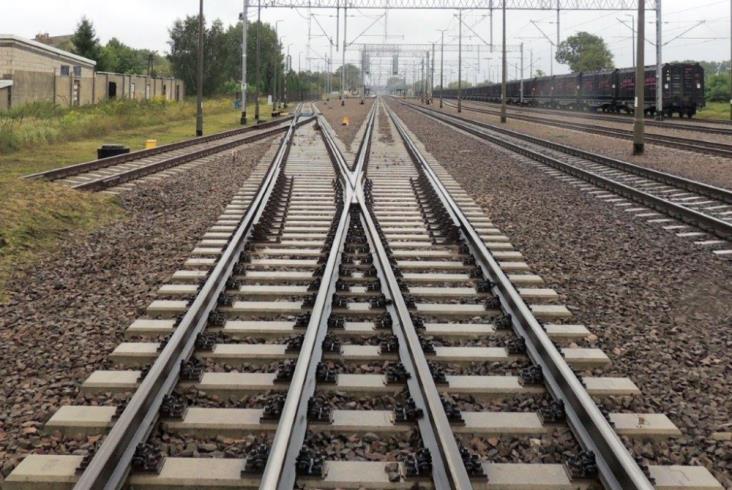Manganese monoblocks at the PKP PLK testing sites
KZN actively engages with the plan to adapt its product range to the requirements of the new technical standards of PKP PLK, which will finally come into force in mid-2018. For this purpose, in cooperation with the railway network manager, it has launched further testing sites for monoblock manganese frogs of its own design.
 The first ones were frogs for the Rz 60E1-500-1:12 and Rz 60E1-1200-1:18,5 railway turnouts, which have just been installed at Ciechanów station (E65 main line). In September, frogs dedicated to railway turnouts with a turning radius of 760 metres will be installed on track at Pszczółki station (E65). Furthermore, manganese monoblock frogs for one of the most popular Rz 60E1-300-1: 9 railway turnouts will reach the track at Bednary station (E20) at the beginning of October. “Frogs for particular types of railway turnouts are tested both in a flat layout as well as on a 1:40 slope. All frogs are also pre-hardened by means of explosive shock hardening technology – that is, by compression caused by the detonation of explosive materials, which significantly increases their operational durability. Experience shows that preliminary hardening of high-manganese frogs using this method corresponds to operational hardening after transferring load of approximately 8 million tons. In this way, the highest quality product is installed on the track and does not require increased supervision and grinding in the initial period of use, something that is necessary in the case of unhardened high-manganese frogs.” says Jacek Paś, Director for Development of KZN “Bieżanów”.
The first ones were frogs for the Rz 60E1-500-1:12 and Rz 60E1-1200-1:18,5 railway turnouts, which have just been installed at Ciechanów station (E65 main line). In September, frogs dedicated to railway turnouts with a turning radius of 760 metres will be installed on track at Pszczółki station (E65). Furthermore, manganese monoblock frogs for one of the most popular Rz 60E1-300-1: 9 railway turnouts will reach the track at Bednary station (E20) at the beginning of October. “Frogs for particular types of railway turnouts are tested both in a flat layout as well as on a 1:40 slope. All frogs are also pre-hardened by means of explosive shock hardening technology – that is, by compression caused by the detonation of explosive materials, which significantly increases their operational durability. Experience shows that preliminary hardening of high-manganese frogs using this method corresponds to operational hardening after transferring load of approximately 8 million tons. In this way, the highest quality product is installed on the track and does not require increased supervision and grinding in the initial period of use, something that is necessary in the case of unhardened high-manganese frogs.” says Jacek Paś, Director for Development of KZN “Bieżanów”.
It should also be emphasized that in the production of the frogs, KZN uses its own patented technology of joining manganese steel with rail steel. The joints are made by means of electrofusion welding using special austenitic inserts, which separate the different structure of both types of steel and create a permanent joint which surface hardens during operation.
“According to the policy of the network manager, from the middle of next year, monoblock structures are to become the core part of railway turnouts on the main railway routes. We assume that we will be offering our contractors the product range along with the relevant certificates, in parallel with the new standards entering into force. And due to the possibility of advance contracting of products that won’t be installed until 2019 or 2020, we want to communicate this information to customers.” says Sławomir Bijak, Member of the Board, Commercial Director of KZN “Bieżanów”.
The entry of new standards into force means that the railway infrastructure market in Poland will reach the level that the majority of the more developed railway countries in Europe currently maintain. So far, the industry has used insert type manganese frogs with transverse bolt connections or imported monoblock frogs. One of the factors preventing the introduction of this proven frog design, in which all bolted connections were eliminated and the key element of the railway turnout is a solid block, was the lack of experience of Polish foundries in manufacturing 4 to 7 metre-long high-manganese castings. The problem still exists and manufactures such as KZN still need the support of foreign entities in obtaining raw castings.
Other News


